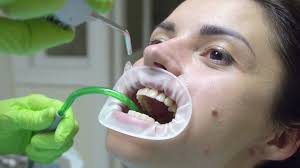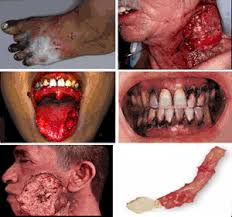When you smoke or inhale the secondhand smoke from a smoker, your body will absorb the nicotine. Your liver’s enzymes will break down the nicotine and the breakdown product named cotinine. The volume of cotinine depends on the volume of nicotine that you absorb.
These substances will be eventually eliminated via your kidneys via urination. Cotinine might often be detectable in your system for about 3 months after the digestion.
Length of Time Nicotine Present In Your Urine
 There are differences between the kinds of cigars that are smoked, it is estimated that there are about 10 milligrams of nicotine in a single cigarette while 1 mg of this amount will be absorbed by your body.
There are differences between the kinds of cigars that are smoked, it is estimated that there are about 10 milligrams of nicotine in a single cigarette while 1 mg of this amount will be absorbed by your body.
When nicotine has gone into your bloodstream, it will be assessed in nanograms per milliliter.
Usually, those non – smokers with no smoke exposure will have less than 1 nanograms per milliliter of cotinine whereas the normal level for those smokers will be higher than 10 nanograms per milliliter or sometimes it might reach 500 nanograms per milliliter. As a result, the average level is between 30 – 50 nanogram per milliliter.
However, when you smoke less frequently, cotinine will stay in your system for about 4 days only. With a higher frequency of smoking, cotinine can be detected for about 3 weeks since your last ingestion.
Positive urine results would regard to the time you had provided the urine sample associated with your last exposure to nicotine. In case you are currently smoking, the test would be positive at 1,000 ng/mL.
A positive result might be about 30 ng/mL when you have not a smoker in more than 2 weeks. Since each lab has distinguished ranges for the positive results, it is much better to discuss your results with the doctor.
Length of Time Nicotine Present In Your Blood
Nicotine might be detectable in your system for up to 3 days, and cotinine can be detectable in your bloodstream for about 10 days since your last exposure. You might use quantitative test (how much nicotine stays in your system) or qualitative test (whether nicotine is there). These test can detect cotinine, nicotine and other breaks down product.
False positive for nicotine are mostly associated with blood test due to the presence of a component named thiocyanate. It can be found in foods such as cabbage and broccoli and several certain medicines.
Length of Time Nicotine Present In Your Hair Follicles and Saliva
 Nicotine and its breakdown product might take up to 4 – 5 days before fully being eliminated from your saliva. Remains of nicotine can be seen in your hair for about 3 months since your last exposure.
Nicotine and its breakdown product might take up to 4 – 5 days before fully being eliminated from your saliva. Remains of nicotine can be seen in your hair for about 3 months since your last exposure.
Regarded to the test used, nicotine can be detected for even a year since your last ingestion. Even though hair testing is available, it is not that frequent as saliva, urine, and blood testing.
What Factors Impact How Long Nicotine Be Present In Your Body?
When the nicotine is recognized by the receptors of your brain, it will stimulate the neurotransmitter release. These are similar to chemical passages used by the brain to transmit the signals with the most famous being dopamine.
Dopamine is a neurotransmitter, however, it normally serves to remind you of rewards.
That explains why it plays a key role in the development of most addictions. But sometimes, it also takes a key role in reminding of negative experiences and the role is usually more complicated than the typical rewards explanation suggests.
Dopamine is not the only neurotransmitter being impacted by nicotine. Other factors that also affect include:
• GABA: this will reduce the neuron’s activity it associates to.
• Serotonin: this affects your moods.
• Noradrenaline: stress hormones.
• Glutamate: this has opposite effects of GABA – this is an excitatory neurotransmitter.
We have known that nicotine works as a stimulant, which means that it can stimulate the brain centers, drive smokers even more alert and induce feelings of euphoria. It’s true but only partially. In fact, nicotine’s side effects are biphasic. In small doses, it works as a stimulant while, with a higher amount of nicotine absorbed, your body will recognize it as a relaxant. These effects are called “psychodynamic” effects.
Pharmacological side effects of nicotine are various. It can temporarily raise blood pressure slightly and your heart rate too. Moreover, it also causes higher insulin resistance, which means those who smoke tend to have higher insulin levels than those who do not smoke.
This state might sometimes lead to a prediabetic state. That’s why those who are suffering from diabetes are highly encouraged to quit smoking to have their disease controlled easily.
How Often You Smoke
There are 3 different categories:
- Heavy users (those who smoke cigarettes more than 3 times a week, consistently on a daily basis).
- Moderate users (those who smoke 1 – 3 times a week).
- Light users (those who smoke only once a week or less).
For those who are a light user, remains of nicotine can stay in your body for up to 3 days while nicotine can stay up to 1 year since the last exposure for those who are a heavy user.
Your Lifestyle or Genetic
There are certain factors that can have a great impact on how long nicotine would be metabolized and fully flushed out of your body.
These include:
- Aging: The elder you are, the longer it might take your body.
- Genes: It is said that Caucasian and Hispanic might take a lesser time to metabolize nicotine than African – Americans or Asian – Americans.
- Hormones: it is also indicated that sex hormones take part in the decision of how long nicotine stays in our system. Those who are taking estrogen or pregnant would metabolize nicotine quicker than men.
- Liver activity: Different people will stimulate nicotine at various rates regard to their liver enzymes.
Medicines You Are Taking
There are several specific medications can have an impact on how slow or how quickly your system stimulates nicotine.
Medications that increase the speed of nicotine metabolism include:
- Phenobarbital (Luminal)
- Antibiotics like rifampin (Rifadin)
Medicines that reduce the nicotine metabolism rate include:
- Hypertension Medication
- Antifungals, such as ketoconazole
How Can You Get Rid of Nicotine From Your System?
The best method to do this is to stop smoking and quit all tobacco by-products. By doing this, cells in your system can concentrate to break down the nicotine and eliminating it.
You can try to do these things below to accelerate the process of getting rid of nicotine:
Eat food that is a high amount of antioxidants: This can aid you in boosting your system’s metabolism rate. You might consider taking carrots and oranges. These foods also include components such as fiber that help you in toxin removal process.
Drink more water: The more water you drink, the more nicotine your body will release via urination.
Exercise: this will enhance your body’s metabolism rate, results in your body releases nicotine faster. Sweat will be released by exercising.
Food That Can Flush Out Nicotine From Your Body
There are several foods that you can consume to boost the nicotine removal process:
- Orange
- Spinach
- Broccoli
- Chili pepper
- Ginger
- Cranberry
- Grapefruit
- Pomegranate
Does Nicotine Lead Cancer?
 It is normally thought that nicotine can cause cancer especially people always think that nicotine can cause lung cancer and different oral cancers. Their reasons are very simple – smoking cause cancer while cigarette contains a high amount of nicotine thus, nicotine leads to cancer.
It is normally thought that nicotine can cause cancer especially people always think that nicotine can cause lung cancer and different oral cancers. Their reasons are very simple – smoking cause cancer while cigarette contains a high amount of nicotine thus, nicotine leads to cancer.
In fact, there is no evidence that nicotine can lead to any kind of cancer. Studies from Lung Health Study describes that even though smoking associates to cancer formation, it is still not true to conclude that nicotine leads to cancer.
Other studies also show that nicotine does not enhance the probability of having cancer.
However, this does not indicate that cancer and nicotine are not separated. Due to the fact that it can enhance the capillary blood vessel expansion and its revascularization characters, nicotine might increase the expansion of existing tumors. Studies on mice also indicate that nicotine can lead to a higher rate of tumor recurrences when the original tumors are treated or removed.
Conclusion
When you smoke, nicotine still might be found in your system, urine, saliva, and hair. It is detectable in your saliva for about 4 days since your last exposure to cigarettes and in your hair follicles for even 1 year.
The best method to get rid of nicotine is to quit all tobacco products. You can exercise, consume more water, and eat food that is a high amount of antioxidants like oranges.
References:
- https://www.healthline.com/health/quit-smoking/how-long-does-nicotine-stay-in-your-system
- https://carekees.com/foods-will-flush-out-nicotine-from-your-body/
Rate This Article
[ratings]
Leave a Reply